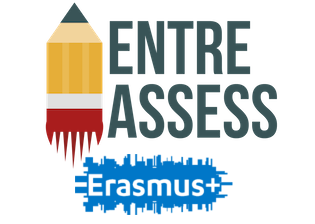 In short: The personal attributes scale was tried out in a school in Reykjavík in 2016. The list of attributes was selected by the researcher. The aim was to get as broad an overview as possible of how teenagers understand their own attributes, with the emphasis being on entrepreneurial attributes.
In short: The personal attributes scale was tried out in a school in Reykjavík in 2016. The list of attributes was selected by the researcher. The aim was to get as broad an overview as possible of how teenagers understand their own attributes, with the emphasis being on entrepreneurial attributes.
Age group: 11 – 16 years old; 158 children in total.
Initial challenges: The challenge was to get students to acknowledge their attributes without someone else pointing things out to them.
What was done about it: The children were provided with a sliding scale with attributes that are positioned as opposites. All of them were invited to fill out a pre-activity sheet and again at the end of the activities. Some of the activities were entrepreneurial in nature and others were science based.
Results: Initial results of this were firstly, that a large number of the children did not have the vocabulary or understanding of what that the concepts that were presented meant to be able to situate themselves on the sliding scale. Other results that were present in the data was that the boys were more likely to err on the side of positive than the girls. This gender bias was present in both the groups working on the entrepreneurial tasks and in the science groups. In the post activity sheets, there was a marked difference in both the understanding of the concepts and in that both genders were more honest in their replies. There was very little difference in the way that the children observed themselves as having entrepreneurial attributes, whether their activities were based in science or in entrepreneurial workshops. The results of using this tool to allow children to access their own attributes as persons and entrepreneurs suggests that it is not the content being taught at each time but the way the children are allowed to engage with the subjects that matter in the effective development of entrepreneurial skills and attributes.
Relevance for entrepreneurial teaching: Development of an entrepreneurial mindset, attributes or skills is all based on the ability of the individual child to be able to understand themselves as BEING entrepreneurial and not on their only knowing about or having partial training in entrepreneurial education.
Applied assessment methods and tools: The personal attribute tool can be categorised as performance assessment, self-assessment, and as being based on informative assessment.
Contact information: rosa@innoent.com
Website: www.innoent.is


